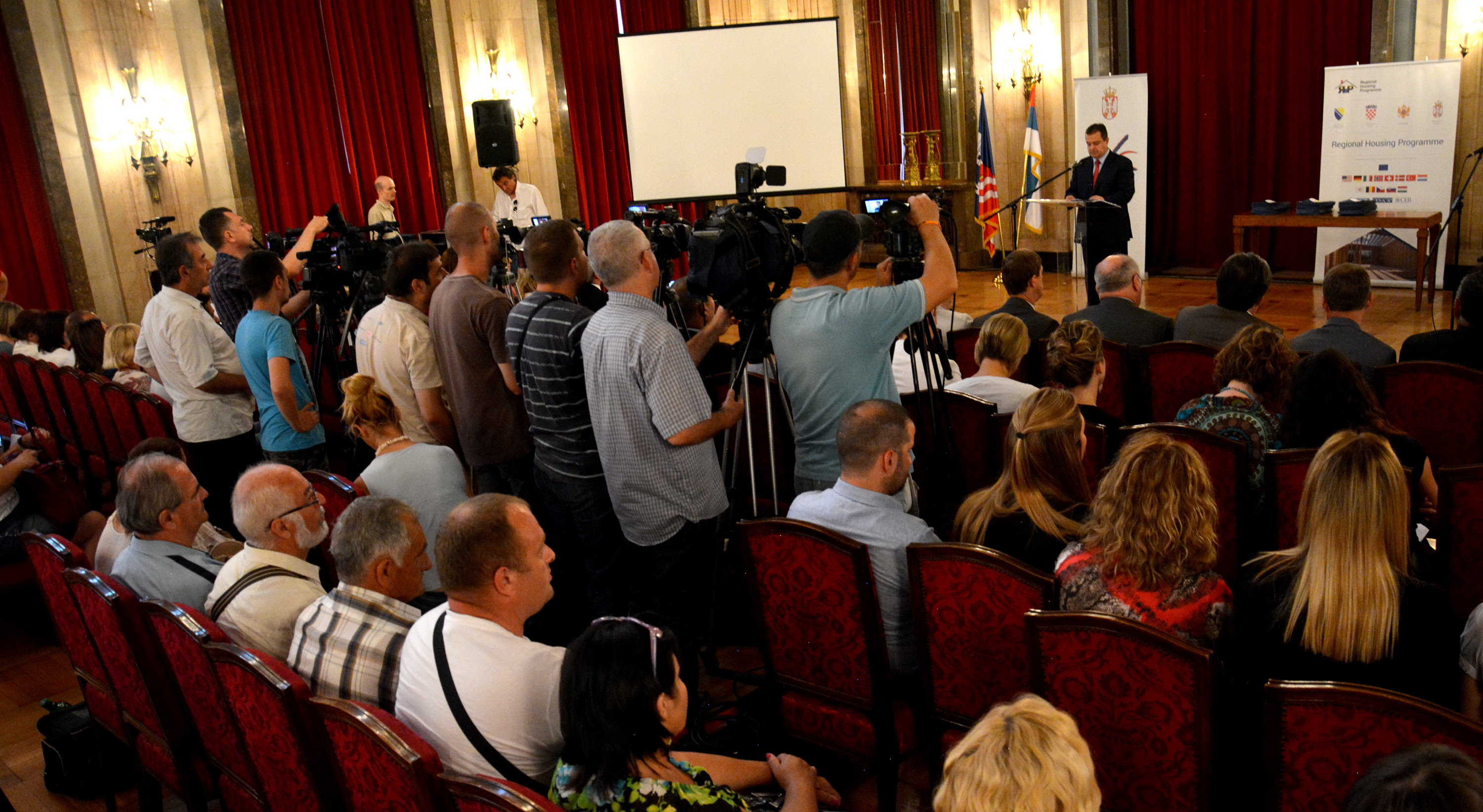



| Monday, 27 June 2016. | |
| Minister Dacic: Addressing the needs of refugees and displaced persons is an imperative for the Serbian Government | |
| + larger fontnormal font- Smaller font | |||
 First Deputy Prime Minister and Minister of Foreign Affairs of the Republic of Serbia Ivica Dacic attended today at the Assembly of the City of Belgrade the ceremony of presenting contracts on grants to be used to purchase village houses with garden, as well as packages of additional assistance for 68 refugee families in the territory of Belgrade, provided in the framework of the Regional Housing Programme for refugees and displaced persons in the territory of the former SFRY. First Deputy Prime Minister and Minister of Foreign Affairs of the Republic of Serbia Ivica Dacic attended today at the Assembly of the City of Belgrade the ceremony of presenting contracts on grants to be used to purchase village houses with garden, as well as packages of additional assistance for 68 refugee families in the territory of Belgrade, provided in the framework of the Regional Housing Programme for refugees and displaced persons in the territory of the former SFRY.On the occasion, Minister Dacic said that addressing the needs of refugees and displaced persons was an imperative for the Serbian Government. He emphasized that Serbia was both politically and morally committed to solving the problem of refugees and displaced persons by investing outstanding efforts to implement everything that had been agreed in this context, which was not an easy task. "This is an important project that will provide homes for families, giving them faith and hope and encouraging us to embark even more resolutely on other related projects", said Minister Dacic, recalling that Serbia was one of five countries in the world having to deal with a protracted refugee crisis. The Minister also noted that Serbia received over 600,000 refugees and 200,000 internally displaced persons from Kosovo and Metohija, adding that approximately 29,000 persons still had a refugee status. First Deputy Prime Minister and Minister of Foreign Affairs Ivica Dacic highlighted that the full implementation of the Sarajevo Process, which included the provision of housing to refugees, is of particular importance to all the countries in the region and that the significance of the process goes beyond state borders. Minister without portfolio responsible for European integration Jadranka Joksimovic said that the EU, the USA and other development partners of Serbia had proven again that partnership did not only imply political support, adding that the financial support provided represented an example of concrete cooperation. According to Minister Joksimovic, the Serbian Government had demonstrated great responsibility in using the funds. Deputy Mayor of Belgrade Andreja Mladenovic spoke about the help the city provided to refugees, noting that the aim was to grant 80 more prefabricated houses and 350 packages of construction materials until the end of the year. Deputy Head of the EU Delegation to Serbia Oscar Benedict pointed out that the EU was the largest donor to the Regional Housing Programme, contributing EUR 280 million to the programme as well as, since 2000, a further EUR 90 million in refugee aid from IPA funds. The Regional Housing Programme is a years-long joint initiative pursued by Serbia, Bosnia and Herzegovina, Montenegro and Croatia with an aim to provide durable housing solutions for approximately 27,000 most vulnerable families or 74,000 persons in the region. Out of this number 16,780 families are located in Serbia, to be more precise approximately 45,000 persons. The project is being implemented with the support of the OSCE and the UNHCR and funded by the EU as its largest donor, as well as the USA, Germany, Italy, Norway, Switzerland, Denmark and Turkey.
|